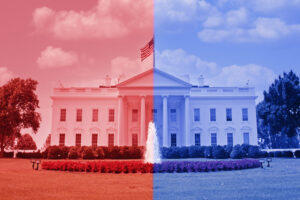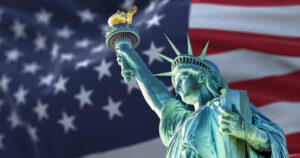As we celebrate the nation’s 247th birthday amid what appears to be intransigent partisan political divides on many fronts, it seems a good time to ponder what patriotism and nationalism means in America today.
Are you feeling patriotic or nationalistic as we pause to celebrate this Fourth of July?
Which? And if neither, why not?
While it is great to be able to get away, have a picnic or take in a parade, celebrating Independence Day in our hearts and minds should mean much more than that.
Our nation needs us to reflect on its true meaning during these challenging times.
What does patriotism and nationalism mean to you?
Since our school days, we have been taught what patriotism means and have taken part in the traditions that reflect it — from reciting the pledge of allegiance to singing the national anthem and other patriotic songs during public commemorations and events.
Patriotism is generally defined as having a genuine love for one’s country, including feelings of pride, devotion and vigorous support and attachment to the homeland as well as fellow citizens.
But patriotism is often confused with nationalism. While they may share the love of country, they are not the same.
Patriotism, historically and now, is based on positive values and feelings like freedom, justice and equality. There is the fundamental belief that the system of government and fellow citizens are inherently good and work together for a better quality of life for all.
Nationalism, on the other hand, which has positive elements of love, pride and protection of country, can also degenerate into superior and separatist beliefs that do more harm than good in fostering the overall well-being of a country and all of its citizens.
Nationalism often includes the promotion of distrust or disapproval of other citizens, ethnic groups, or other countries, giving rise to extremism and hate groups, This is evident in recent nationalist movements in this country.
If you identify as a nationalist, on which side of nationalism do you identify?
But embracing the good of nationalism — love and protection of country — and the values of patriotism could make for a winning combination.
What would a “Patriotic Nationalist” look like?
Perhaps like this.
Rather than fighting against and undermining our sacred documents — the Declaration of Independence, the Constitution, and its Amendments — we would devote time to understanding, upholding and applying them.
Instead of denigrating and ignoring our branches of government and the roles they play in enabling and protecting our institutions and individual rights, we would promote respect and support for them.
We would see our sacred documents, branches of government and institutions as works in progress and not something that should be weakened, discarded or destroyed.
As patriotic nationalists, it means caring enough for our individual and collective well-being by adhering and abiding by the rule of law in all our conduct and behavior, and demanding the same from others.
We would eschew, oppose and work against policies and actions that undermine or threaten the nation’s character, identity and stability at home or abroad.
It is not “us” against “them” especially within our borders, and as we continue to assume roles on the world stage that are not only in the best interests of America but all humanity.
Patriotism and nationalism need not be diametrically opposed. There can be real strength in their coexistence when we embrace and live out the positives.
Even if you think being a “Patriotic Nationalist” is an impossibility based upon what being a nationalist or patriot means to you, then with which do you most identify?
Which do you think our country needs most in these divisive and precarious times we find ourselves?
Perhaps, committing to the good aspects of both creates a bridge that we can cross together to tackle and solve the challenges our nation faces.
No matter what you call it or how you label it, the health and well-being of this nation moving forward will require that most of its citizens at least be strong patriots. A country will not survive without them.
During the fight for the nation’s independence in 1776, Thomas Paine wrote about the need for a country to have happy patriots who draw strength and become even more committed during adverse times or national crises.
On this, the most patriotic holiday we celebrate, what do you think? What thoughts are you passing on to future generations?
Amid all the fireworks, picnics, parades, travel plans, and parties — all of which we take for granted — do you consider yourself at least to be a real patriot, a patriotic nationalist, neither?
This Independence Day, the question is worth considering.
Our stories may be republished online or in print under Creative Commons license CC BY-NC-ND 4.0. We ask that you edit only for style or to shorten, provide proper attribution and link to our website. AP and Getty images may not be republished. Please see our republishing guidelines for use of any other photos and graphics.






Janice Ellis